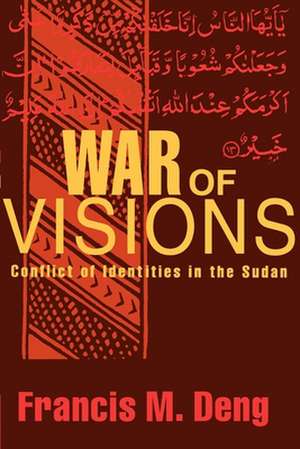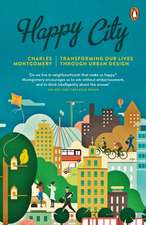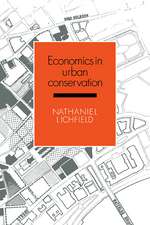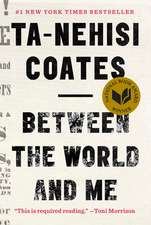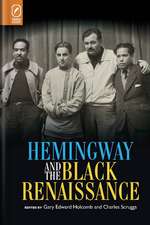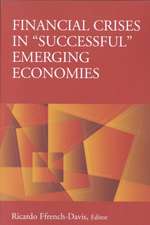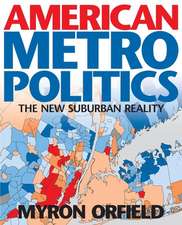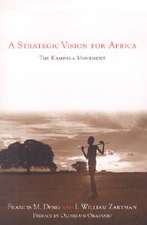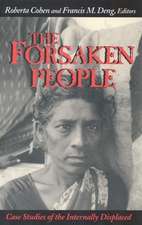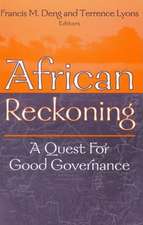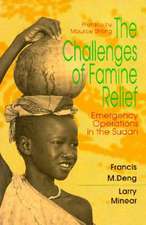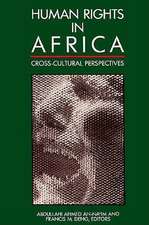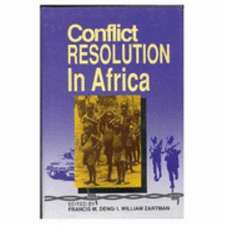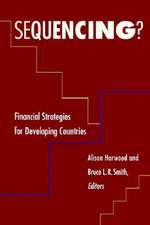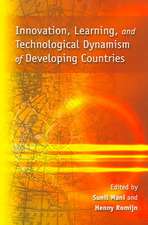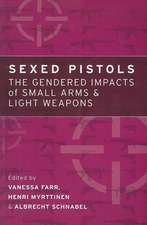War of Visions: Conflict of Identities in the Sudan
Autor Francis M. Dengen Limba Engleză Paperback – aug 1995
The civil war that has intermittently raged in the Sudan since independence in 1956 is, according to Francis Deng, a conflict of contrasting and seemingly incompatible identities in the Northern and Southern parts of the country. Identity is seen as a function of how people identify themselves and are identified in racial, ethnic, cultural, linguistic, and religious terms. The identity question related to how such concepts determine or influence participation and distribution in the political, economic, social, and cultural life of the country.
War of Visions aims at shedding light on the anomalies of the identity conflict. The competing models in the Sudan are the Arab-Islamic mold of the North, representing two-thirds of the country in territory and population, and the remaining Southern third, which is indigenously African in race, ethnicity, culture, and religion, with an educated Christianized elite. But although the North is popularly defined as racially Arab, the people are a hybrid of Arab and African elements, with the African physical characteristics predominating in most tribal groups.
This configuration is the result of a historical process that stratified races, cultures, and religions, and fostered a "passing" into the Arab-Islamic mold that discriminated against the African race and cultures. The outcome of this process is a polarization that is based more on myth than on the realities of the situation. The identity crisis has been further complicated by the fact that Northerners want to fashion the country on the basis of their Arab- Islamic identity, while the South is decidedly resistant.
Francis Deng presents three alternative approaches to the identity crisis. First, he argues that by bringing to the surface the realities of the African elements of identity in the North-- thereby revealing characteristics shared by all Sudanese--a new basis for the creation of a common identity could be established that fosters equitable participation and distribution. Second, if the issues that divide prove insurmountable, Deng argues for a framework of diversified coexistence within a loose federal or confederate arrangement. Third, he concludes that partitioning the country along justified borders may be the only remaining option to end the devastating conflict.
War of Visions aims at shedding light on the anomalies of the identity conflict. The competing models in the Sudan are the Arab-Islamic mold of the North, representing two-thirds of the country in territory and population, and the remaining Southern third, which is indigenously African in race, ethnicity, culture, and religion, with an educated Christianized elite. But although the North is popularly defined as racially Arab, the people are a hybrid of Arab and African elements, with the African physical characteristics predominating in most tribal groups.
This configuration is the result of a historical process that stratified races, cultures, and religions, and fostered a "passing" into the Arab-Islamic mold that discriminated against the African race and cultures. The outcome of this process is a polarization that is based more on myth than on the realities of the situation. The identity crisis has been further complicated by the fact that Northerners want to fashion the country on the basis of their Arab- Islamic identity, while the South is decidedly resistant.
Francis Deng presents three alternative approaches to the identity crisis. First, he argues that by bringing to the surface the realities of the African elements of identity in the North-- thereby revealing characteristics shared by all Sudanese--a new basis for the creation of a common identity could be established that fosters equitable participation and distribution. Second, if the issues that divide prove insurmountable, Deng argues for a framework of diversified coexistence within a loose federal or confederate arrangement. Third, he concludes that partitioning the country along justified borders may be the only remaining option to end the devastating conflict.
Preț: 288.23 lei
Nou
Puncte Express: 432
Preț estimativ în valută:
55.15€ • 58.98$ • 45.99£
55.15€ • 58.98$ • 45.99£
Carte tipărită la comandă
Livrare economică 17 aprilie-01 mai
Preluare comenzi: 021 569.72.76
Specificații
ISBN-13: 9780815717935
ISBN-10: 0815717938
Pagini: 592
Ilustrații: maps
Dimensiuni: 152 x 229 x 37 mm
Greutate: 0.88 kg
Ediția:New.
Editura: Brookings Institution Press
Colecția Brookings Institution Press
ISBN-10: 0815717938
Pagini: 592
Ilustrații: maps
Dimensiuni: 152 x 229 x 37 mm
Greutate: 0.88 kg
Ediția:New.
Editura: Brookings Institution Press
Colecția Brookings Institution Press
Notă biografică
Francis M. Deng is a nonresident senior fellow in the Foreign Policy Studies program at the Brookings Institution and co-director of the Brookings-SAIS Project on Internal Displacement. He has served as the Sudan's minister of state and foreign affairs; as its ambassador to Canada, the United States, and Scandinavia; and as special representative of the United Nations secretary-general for internally displaced persons.
Descriere
The civil war that has intermittently raged in the Sudan since independence in 1956 is, according to Francis Deng, a conflict of contrasting and seemingly incompatible identities in the Northern and Southern parts of the country. Identity is seen as a function of how people identify themselves and are identified in racial, ethnic, cultural, linguistic, and religious terms. The identity question related to how such concepts determine or influence participation and distribution in the political, economic, social, and cultural life of the country.
War of Visions aims at shedding light on the anomalies of the identity conflict. The competing models in the Sudan are the Arab-Islamic mold of the North, representing two-thirds of the country in territory and population, and the remaining Southern third, which is indigenously African in race, ethnicity, culture, and religion, with an educated Christianized elite. But although the North is popularly defined as racially Arab, the people are a hybrid of Arab and African elements, with the African physical characteristics predominating in most tribal groups.
This configuration is the result of a historical process that stratified races, cultures, and religions, and fostered a "passing" into the Arab-Islamic mold that discriminated against the African race and cultures. The outcome of this process is a polarization that is based more on myth than on the realities of the situation. The identity crisis has been further complicated by the fact that Northerners want to fashion the country on the basis of their Arab- Islamic identity, while the South is decidedly resistant.
Francis Deng presents three alternative approaches to the identity crisis. First, he argues that by bringing to the surface the realities of the African elements of identity in the North-- thereby revealing characteristics shared by all Sudanese--a new basis for the creation of a common identity could be established that fosters equitable
War of Visions aims at shedding light on the anomalies of the identity conflict. The competing models in the Sudan are the Arab-Islamic mold of the North, representing two-thirds of the country in territory and population, and the remaining Southern third, which is indigenously African in race, ethnicity, culture, and religion, with an educated Christianized elite. But although the North is popularly defined as racially Arab, the people are a hybrid of Arab and African elements, with the African physical characteristics predominating in most tribal groups.
This configuration is the result of a historical process that stratified races, cultures, and religions, and fostered a "passing" into the Arab-Islamic mold that discriminated against the African race and cultures. The outcome of this process is a polarization that is based more on myth than on the realities of the situation. The identity crisis has been further complicated by the fact that Northerners want to fashion the country on the basis of their Arab- Islamic identity, while the South is decidedly resistant.
Francis Deng presents three alternative approaches to the identity crisis. First, he argues that by bringing to the surface the realities of the African elements of identity in the North-- thereby revealing characteristics shared by all Sudanese--a new basis for the creation of a common identity could be established that fosters equitable
